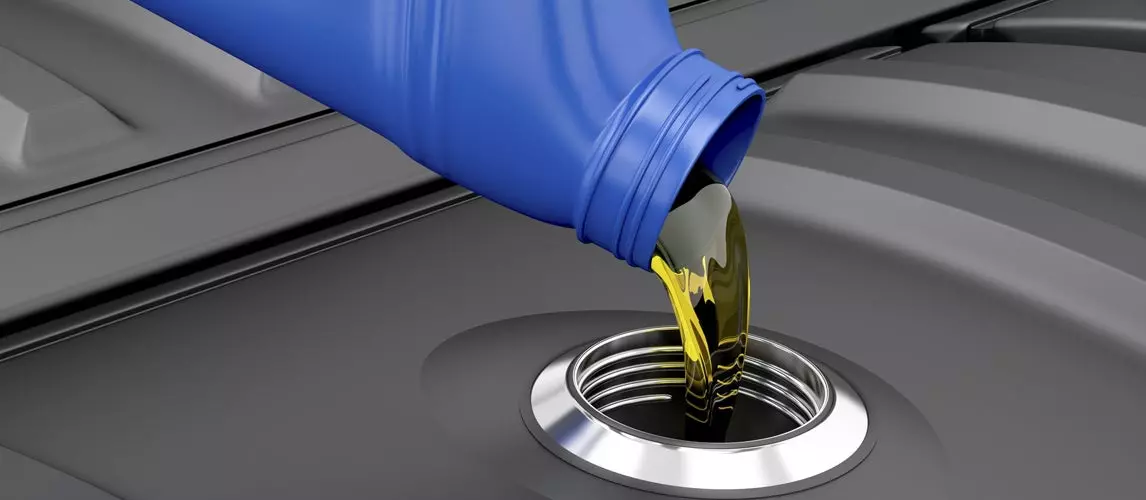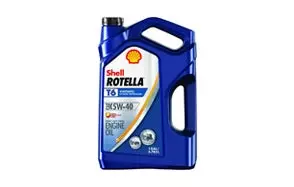- 1. Mobil 1 120764 Synthetic Motor Oil 5W-30
- 2. Valvoline 0W-20 SynPower Full Synthetic Motor Oil-5qt (813460)
- 3. Pennzoil 550046122 Platinum 5W-20 Full Synthetic Motor Oil
- 4. Shell ROTELLA Full Synthetic Diesel Engine Oil
- 5. Royal Purple High Performance Synthetic Motor Oil
- 6. Mobil 1 (120769) High Mileage 5W-30 Motor Oil
- 7. Liqui Moly 2041 Premium 5W-40 Synthetic Motor Oil
- 8. Valvoline 5W-30 MaxLife High Mileage Motor Oil
Your engine shouldn’t have to deal with low-grade oils. It cradles you from A to B; it gives you its best, so give it your best. Motor oil cleans, coats, and cools your engine, while aiding in upkeeping your fuel economy. For this task, synthetic oils help beyond compare; but there’s a catch – there’s a ton of terrible synthetic oils on the market. We’ve pulled our list from the synthetics that our editor uses, the products that our readers since 2005 use, and the time-tested, fantastic synthetics that have been bringing avid auto mechanics back for more.
The Best Synthetic Oil
The full synthetic formulation of Mobil 1’s 120764 Synthetic Motor Oil 5W-30 offers greater stability across a wider spectrum of oxidation states and temperature variations. While it doesn’t clearly indicate any proprietary additive technology, you can expect that there is one that’s embedded into its unique formulation. Otherwise, motorists won’t really be singing high praises for the motor oil. It is excellent for cold weather starting while offering optimum engine protection in hot weather. It’s perfectly suited for high performance cars, although it won’t do any harm on legacy vehicles. At any rate, you can perhaps rely on the fact that Mobil 1 is the official motor oil of NASCAR racecars. So you can expect racetrack technology to be present in the 120764.
- Superior viscosity control
- Fully advanced synthetic formulation
- Oxidation and thermal stability
- Advanced frictional properties
- Brand Mobil 1
- Model 120764
- Weight 9.35 lbs
If you live in extremely cold climates such as the upper north, Valvoline’s SynPower Full Synthetic Motor Oil should be an excellent choice. Its low temperature viscosity rating at 0 helps ensure you get exceptionally fast engine starts even in extremely cold weather conditions. And if you believe what motorists are saying about Valvoline’s SynPower, then you know that it can sufficiently enhance your fuel mileage by up to 2 MPG. It may not be that much, but it is still a lot better than say a 0.5- or a 1- MPG increase. SynPower can also be used on high-performance engines such as those that are supercharged or turbocharged. It works exceptionally well in naturally-aspirated engines, too. With SynPower you get excellent engine performance and protection at a really friendly price.
- Superior engine cleanliness
- Remarkable high temperature protection
- Enhances fuel efficiency
- Excellent for performance engines
- Brand Valvoline
- Model 813460
- Weight 9.25 lbs
Featuring a unique PurePlus Technology that gives it amazing engine protection and engine performance-enhancing characteristics, the Pennzoil Platinum Full Synthetic Motor Oil is often the preferred engine oils of many vehicle enthusiasts. PurePlus Technology is Pennzoil’s unique process of converting natural gas into the kind of fully synthetic base oil it uses in its high-quality products. This helps ensure you get cleaner engine. When combined with its highly advanced detergents that help remove sludge and other contaminants in the engine, then you know what Pennzoil Platinum brings for your car. It is actually the excellent combination of price and performance – both cleaning and protection capabilities – that makes the Pennzoil Platinum a wise choice.
- PurePlus Technology
- Superior-performing active cleansing agents
- Provides 40% cleaner engines
- Excellent engine performance across extreme temperatures
- Brand Pennzoil
- Model 550046122
- Weight 9.95 lbs
Boasting of a combination of improved wear performance, deposit control, and heat resistance, Shell’s Rotella T6 5W-40 Full Synthetic Diesel Engine Oil barges into our list of the best motor oils primarily because of its Triple Protection Plus Technology. Minimizing the effects of mechanical wear, contaminant deposits, and overheating can significantly improve the overall performance of your car. It is the unique blend of Shell’s proprietary fully synthetic base oils and Formula 1-inspired engine additives that gives the T6 its amazing engine protection and performance-enhancing capabilities. The Rotella T6 is also designed with advanced low-ash formulation to help provide for better fuel efficiency and maintaining your car’s compliance with emission standards.
- Triple Protection Plus technology
- 1.5% better fuel economy that 15W-40 oils
- Formulated specifically for modern diesel engines
- Best for controlling turbocharger deposits
- Excellent blend of base oils and especially formulated advanced additives
- Brand Shell Rotella T
- Model 550045347
- Weight 7.7 lbs
You can always count on Royal Purple’s 51520 SAE 5W-20 High Performance Synthetic Motor Oil to give you better wear protection, superior corrosion protection, and increased fuel efficiency. The latter is achieved through Royal Purple’s unique formulation that comes with low coefficient of friction. Its blend of additives also help protect your car’s catalytic emissions system while also helping prevent lubrication starvation and the formation of sludge which typically occur on ethanol-based fuels. Its Synerlec additive is what makes Royal Purple extra special. This additive works at the molecular level to give your engine the kind of performance it needs. Royal Purple can also be used to top-off other types of oils without the need to drain existing engine oil.
- Designed specifically for gasoline engines
- Low coefficient of friction
- Patented emissions catalyst system-enhancing ZDDP additives
- Improved compatibility with ethanol-based fuels
- Excellent corrosion protection, wear protection, fuel efficiency
- Brand Royal Purple
- Model ROY51520
- Weight 8 lbs
Owners of vehicles that have accumulated more than 75,000 miles under the hood are generally confined to conventional motor oils because of the risk involved in converting from conventional to synthetic motor oils. However, as long as you use the High Mileage formulation of Mobil 1’s 120769 Motor Oil breathing new life to your old engine is easy. It effectively plugs leaks with better sealants to make your 75,000-mile engine purring like new. While it is true that there are better motor oils and that the Mobil 1 is only SL-rated, considering that it is specific for high mileage vehicles, then it should be perfect for the majority of car owners in the market today.
- Formulated for gas engines with more than 75,000 miles
- Full synthetic formulation
- Excellent lubrication, cleaning, and wear protection
- Brand Mobil 1
- Model 120769
- Weight 9.4 lbs
Just like Mobil 1’s High Mileage Motor Oil, Valvoline’s MaxLife High Mileage 5w-30 Motor Oil is specifically designed for vehicles that have engines well over 75,000 miles. So it really doesn’t make sense to use the oil in newer cars that barely reached the 50,000-mile mark let alone the 75,000. An evaluation of customer reviews shows that the main complaint is not receiving the right product. Quite a few customers noted that the MaxLife as advertised has the Dexos seal. However, what they received doesn’t have any. It is worth pointing out that this is in no way related to the performance of the MaxLife since sending the wrong product is the sole responsibility of online sellers. To eliminate this issue it is best to obtain MaxLife from reputable sellers.
- Formulated specifically for long-running gasoline engines with over 75,000 miles
- With proprietary special seal conditioners
- Boosted wear protection technology
- Extra detergent technology
- Embedded with antioxidants
- Brand Valvoline
- Model 782256
- Weight 9.02 lbs
Best Synthetic Oils Buying Guide
What Type of Synthetic Oil Do I Need?
There are two fundamental types of synthetic oils currently available in the market. Choosing which between these two will be right for your vehicle depends on a variety of factors that we will be looking into in greater detail in the next section. Suffice it to say, it is best to understand the 2 types of synthetic oil first.
Synthetic blend
This type of synthetic is actually a combination of conventional motor oil and a company’s synthetic base oil. You can look at it more like a juiced-up version of your conventional motor oil. It also gives you performance boosts and improved protection for your engine except that these will still pale in comparison to full synthetics. The good thing about synthetic blends is that you get some of the benefits of full synthetics while paying only slightly higher than conventional oil.
Full synthetic
As we have been discussing, full synthetics are those that are manufactured in the lab complete with a very unique molecular structure and embedded with advanced additives to give you the best protection and best performance for your engine.
Now here’s where it can get complicated. Because the development of full synthetic motor oil occurs in the lab, their inherent protective and performance characteristics vary greatly from manufacturer to manufacturer. That is why you may have several synthetics all rated at SAE 5W-20 yet the experiences of motorists vary greatly. The answer is in the formulation of the product. Since this is technically a blend of proprietary synthetic base oil and advanced additives, each company may have its own patented technology for each component of the blend.
That being said, you may get full synthetics that are much better at cleaning your engines while others might be able to provide you with better engine protection. Some will provide exceptional thermal protection but are lousy at cold starts. As such it is important to choose a full synthetic that will give you the kind of outcome you want for your car.
Factors to Consider
We said that making the choice on the type of synthetic oil to use on your car depends on a host of factors. As such we’re here to examine some of these factors that you might want to consider when choosing synthetic motor oil for your car.
Compatibility with existing oil
While it is perfectly okay to top your conventional oil with full synthetic, this is not generally recommended as you are simply diluting the unique chemical properties of the synthetic. In simple words, you may not be able to obtain the best performance and protection for your car. Instead, it is best to drain your engine oil, flush it with an appropriate solution, and then replace it with a synthetic.
Now, before you do that you have to check your vehicle owner’s manual regarding the specific type of oil to be used. You have to understand that there are legacy engines that work a lot better with conventional oils rather than full synthetics. If ever you have a modern car usually dated 2000 and above, you will most likely benefit from a full synthetic.
Viscosity grade
We have been talking about this unique characteristic of oil – viscosity – or thickness. What you would want to have is the right viscosity grading in your motor oil depending on the prevailing environmental conditions in your area.
If you are the type of driver who would typically be a devil behind the wheel or you’re fond of hauling bulky and heavy things or even just cruising along on a really hot and humid day, you’ll find that the best viscosity grade will be one with a ‘thicker’ consistency. This means you will have to go for something like 10W-40 or even 15W-50. This is especially true for engines that will be going through high temperatures or engine stress.
On the other hand, if you’re living in an area where it snows 364 days of the year with the only day left being in the mild 60s, then you have better get synthetic oil that has exceptional low temperature viscosity rating. You can go for a 5W-20 or even 0W-20.
If you’re driving in conditions that are neither too hot nor too cold or that your engine is not really subjected to extremes in temperatures and stress levels, then getting an engine oil that has medium viscosity grading should suffice. A good rating to start will be 5W-30.
Additives
One of the essential differentiating characteristics of full synthetics from synthetic blends and conventional motor oils is the presence of additives. Unfortunately, this is also what differentiates one brand of synthetic from the next since, as we already pointed out, different companies will have their different take on what they perceive to be the best-performing motor oil. That being said, it would be wise to look at the most common additives used in modern synthetic oils.
Anti-foaming agents – As the name implies, this additive is what prevents the formation of bubbles or foam which can create cavitation in the oil. These cavitation are air pockets that can adversely affect the important qualities of synthetic oil especially lubrication.
Antioxidants – Just as antioxidants negate the effects of free radicals in the body, antioxidant additives in engine oils can also provide almost the same effect. This helps protect the oil against premature degradation, further increasing its lifespan and overall performance.
Anti-wear agents – One of the most common anti-wear agents used in today’s synthetics is zinc dialkyldithiophosphate or ZDDP. While it is still poorly understood how the substance is able to reduce the rate of degradation of the metal elements in the engine, the general observation is that it can significantly lengthen the overall lifespan of your car’s engine.
Conditioners – Also known as softeners, these additives are mostly found in formulations geared for older or high mileage engines. What they do is that they try to soften up seals to help them expand a lot better and form a tight fit in their respective fittings. It’s perfect for preventing leaks.
Corrosion inhibitors – As you may have already guessed, these additives are excellent in terms of protecting the metal surfaces of your engine from highly corrosive substances such as acids.
Detergents – These are one of the most common types of additives integrated into synthetic formulations. They enhance the engine-cleaning properties of synthetics. They can also help in the removal of gunk and debris.
Dispersants – These are almost similar to deaggregators wherein they help prevent the clumping of various particles. This helps prevent the buildup of sludge which can cause partial blockage in any of your engine’s ports.
Viscosity index improvers – Remember what we said about oil turning watery-thin in higher temperatures? Well, it’s the job of viscosity index improvers to make sure that the amount of oil ‘thinning’ is kept to a minimum to retain the important physical and thermal properties of synthetics.
As we have pointed out earlier, choosing the best synthetic oil will have to include considering the type of additives that you would want for your engine. While it would be ideal to get all of these additives in a single product, it simply isn’t the case in the real world.
Synthetic motor oils are especially formulated for today’s high-performance engines. Even legacy engines with exceptionally high mileage on their odometers can also benefit from these lab-formulated and tested products. Choosing the best synthetic oil will actually depend on driving conditions, the compatibility of the oil to your existing lubricant, and the choice of additives you may want on your car. With our list of the best synthetic motor oils you’re now one step closer to putting the best protection and performance-enhancer in your engine.
Sources:
- Synthetic Oil Pros and Cons – HowStuffWorks


















